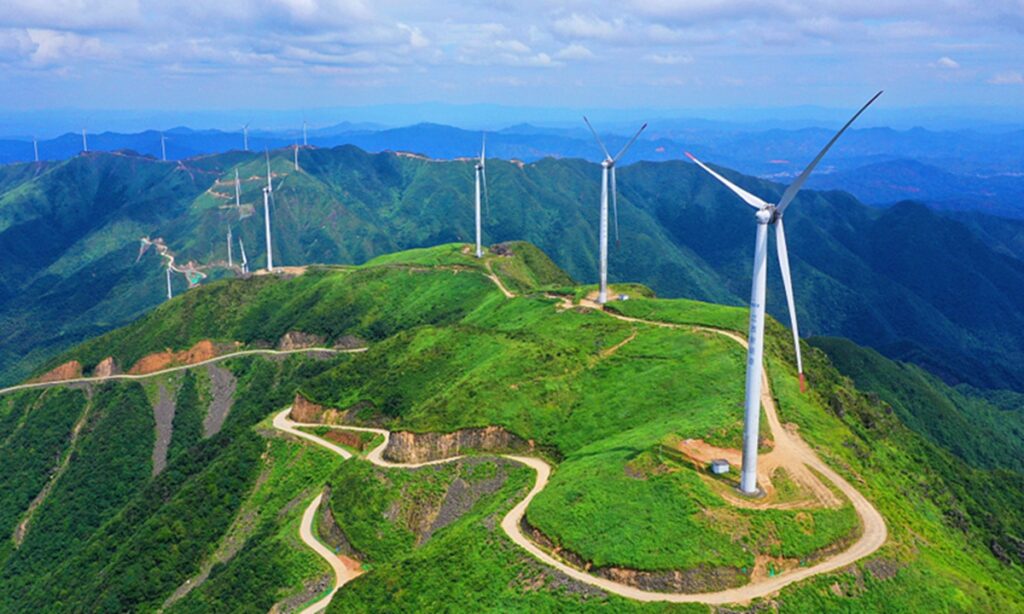It is now impossible to ask China to set the same carbon price as the EU, as the two sides’ carbon prices were set under different development conditions and emission goals, said a Chinese official in charge of climate change policy, who also criticized the EU’s proposed carbon tariff as “unscientific, irrational and unfair.”
“A carbon price is determined by many factors, including the cost of reducing emission, which largely includes labor costs. The per capita income gap between China and the EU, as well as the difference in carbon prices, reflect China’s acceptance of its emission reduction costs and that China’s carton price is reasonable,” said Xu Huaqing, head of the National Center for Climate Change Strategy and International Cooperation on Saturday.
He emphasized that it is impossible to ask China to set the same carbon price as the EU now, and achieving such a goal will require time.
The remarks were made by Xu during a panel discussion at the World Peace Forum on Saturday.
The EU has always been pressuring China on the carbon price and the two parties have tussled over an EU-proposed carbon tariff. The carbon price in China’s national carbon market has been largely hovering around 55 yuan ($7.72) per ton of CO2 since the start of this year, while the average price in the EU’s carbon market is approximately 80 euros, or $85.71, per ton of CO2.
Xu also criticized the EU’s proposed Carbon Border Adjustment Mechanism (CBAM) as “unscientific, unfair and irrational.” He noted that China’s carbon market has become a strong and effective policy tool in curbing greenhouse gas emissions and achieving the country’s goal of reaching peak carbon dioxide emissions by 2030 and carbon neutrality by 2060. Xu pointed out that carbon leakage is the major concern of the EU’s CBAM, which is not aligned with China’s ideas behind operating a carbon market.
The EU’s own carbon market also has many shortcomings, which cannot be transferred to developing countries, Xu added.
After nearly two years of negotiations involving many parties, the CBAM finally completed its legislative process in May this year, under which, the aim of Europe’s new carbon border tax is to level the playing field for carbon-intensive goods imported into EU member states.
The mechanism assumes that the significant differences in levels of climate ambition could lead to a risk of “carbon leakage,” which occurs when EU companies move carbon-intensive production to countries and regions with less stringent climate policies to maintain their cost competitiveness.
In October 2022, Li Gao, head of the department of climate change at China’s Ministry of Ecology and Environment, criticized the EU’s move to impose carbon tariffs on exports to the bloc as a means to increase the difficulty for China to export certain products into EU member states.
China opposes any form of trade or technological barrier established in the name of climate change. This is a unilateral move, morally untenable and not good for world’s collective effort to tackle climate change in practice, Li said.
(Global Times)




